Follow pro wrestler Madusa's path from body slams to monster trucks

For nearly two decades, a black velvet case sat on the shelf in a safe in Debrah Miceli’s central Florida home, a loaded keepsake amid her collection of jewelry and guns. Inside the case was a pink-leather championship belt that doubled as trophy and taunt. There were days she eyed it and swelled with pride. On others, she cursed the thing for ruining her life. “I had my moments,” Miceli says. “Different every time.”
Those who know Miceli as Madusa or Alundra Blayze, her noms de ring, likely understand that double-edged sword: In 1995, after the WWE let her go while she was its women’s champion, she signed with the rival World Championship Wrestling and dropped the WWE women’s championship belt in a trash bin on live television. It was the most direct shot yet in a brewing war between the two companies and an incident that would become iconic in retrospect. Yet for Miceli, who says she was only following the orders of her new boss, the gesture—and thus the belt, which she kept—became an albatross. She swore that she would return the championship to WWE honcho Vince McMahon, but their proverbial bridge was burned. And so, for more than 19 years, she felt a nag. “Without closure,” says Miceli, “you cannot go forward.”
Sports Illustrated's Where Are They Now? stories
Miceli speaks from a red leather couch in a lounge inside the FirstOntario Centre in Hamilton, Canada, still loquacious despite a morning parade of local media interviews. Like the star-emblazoned, pink crew shirt peeking out from under her black down coat, her location and morning duties are evidence that she has gone forward plenty. For the past 15 years, Miceli has been a star driver on the Monster Jam truck circuit, where she won world championships in 2004 and ‘05. With her eponymous truck, Madusa, Miceli is the rare driver as or more famous than her vehicle. During the customary 90-minute meet-and-greet before each Monster Jam event, Miceli typically signs a slew of Madusa merchandise brought by fans: pink and white car flags, “Queen of Carnage” T-shirts, plush toy versions of her truck.
Invariably, those that know her from Madusa’s first incarnation also bring souvenirs from her 18 years in the ring: magazine centerfolds, glossy promotional photos, still more T-shirts. In Hamilton, one man wears a sky blue number bearing the image of a title belt draped over the lid of a trash can; Miceli giddily signs the back. She is never far from her reminders of her wrestling past—nor, given the testosterone flowing through the monster truck circuit, from the current against which she has now swam two times over.
“I’m in a man’s business—twice,” she says. “And I’ve survived both.”
• WWE's Big Show finally admits Brock Lesnar ring breaking spot rigged
Miceli’s choice of verb is deliberate, indicative of a lifelong mindset of endurance. She remembers an unforgiving childhood begun in Minnesota foster homes before she was taken back in by her inattentive birth mother. A young Miceli sought adulation elsewhere, becoming a standout high school gymnast and a self-described “tomboy” who reveled in the world of dirt bikes and ATVs. In 1984, she was 20 years old and training to be a nurse when a friend’s boyfriend suggested Miceli’s bleach-blonde looks and rugged athleticism would be a perfect fit in pro wrestling.
The transition was quick, but not easy. Miceli dropped her nursing studies in favor of $5 paydays to wrestle in bars and bingo halls, often living out of her old black Ford. Within two years she had earned a spot in the American Wrestling Association to work with the late Sherri Martel, a veteran who granted the youngster no quarter. “She beat the piss out of me, corner to corner,” says Miceli. “We had adjoining [hotel] rooms and I’d knock: Sherri, could we talk about our match? I opened the door and she slammed it on my fingers.”
But the pair’s work accelerated Miceli’s career. In 1988, she became the first woman named Pro Wrestling Illustrated’s Rookie of the Year, beating out future stars Chris Benoit and Scott Steiner. The next year she headed to Japan, a formative rite of passage for many a young wrestler, to join the prestigious All-Japan Women’s Pro Wrestling. Like Martel, Miceli’s Japanese colleagues made the peppy blonde gaijin prove she belonged—“basically trying to kick my a-- out of Japan,” Miceli says. Miceli stayed, studying kickboxing and Muay Thai and learning the country’s more physical wrestling style from some of its most respected practitioners, like Chigusa Nagayo and Bull Nakano. Japanese fans ended up so embracing Madusa—the unique spelling was born from the phrase “Made in the USA”—that Miceli even recorded a Japanese-language pop album called Who’s Madusa? (She still has copies of the minidiscs.)
Former wrestling star Tito Santana now focusing on helping at-risk kids
Back home, trouble brewed. Two years into her All-Japan stint, Miceli got a call from her accountant: the management team that Miceli had put in charge of her finances had apparently squandered her earnings away. Devastated, she says she returned stateside to an $80,000 tax debt and racked up another $30,000 in legal fees while sorting it out. “From nothing to nothing,” Miceli says. “I was scared. I was looking at bankruptcy.”
She soon found work in WCW, spending two years in a primarily non-wrestling role before getting her biggest break yet. Greg “The Hammer” Valentine, a former flame, had put in a good word with WWE, which signed Miceli to revitalize its dormant women’s division. Miceli declined to sign over rights to the Madusa name, prompting a rechristening as the WWE-trademarked Alundra Blayze. She worried the name dispute would anger McMahon before she had even set foot in his ring. Her new boss assuaged her fears with an act of generosity.
“I remember Vince saying, ‘Is there anything that you need?’” says Miceli. “Jokingly, I said, ‘Yeah, I got this big IRS bill I need to f---in’ pay off.’ He goes, ‘How much is it?’ I remember telling him it was 35 grand. I got a check in the mail.”
For the next two years, Miceli was the WWE women’s division’s raise d'être, holding its championship three times while working hard-hitting matches with imported villains like Nakano. But as the company reeled from an industry lull in late 1995, McMahon axed the entire women’s division, including its reigning champion. “I was so hurt,” says Miceli. “I gave everything. I just didn’t understand it.”
GALLERY: Pro Wrestlers, then and now
Pro Wrestlers, Then and Now
Hulk Hogan
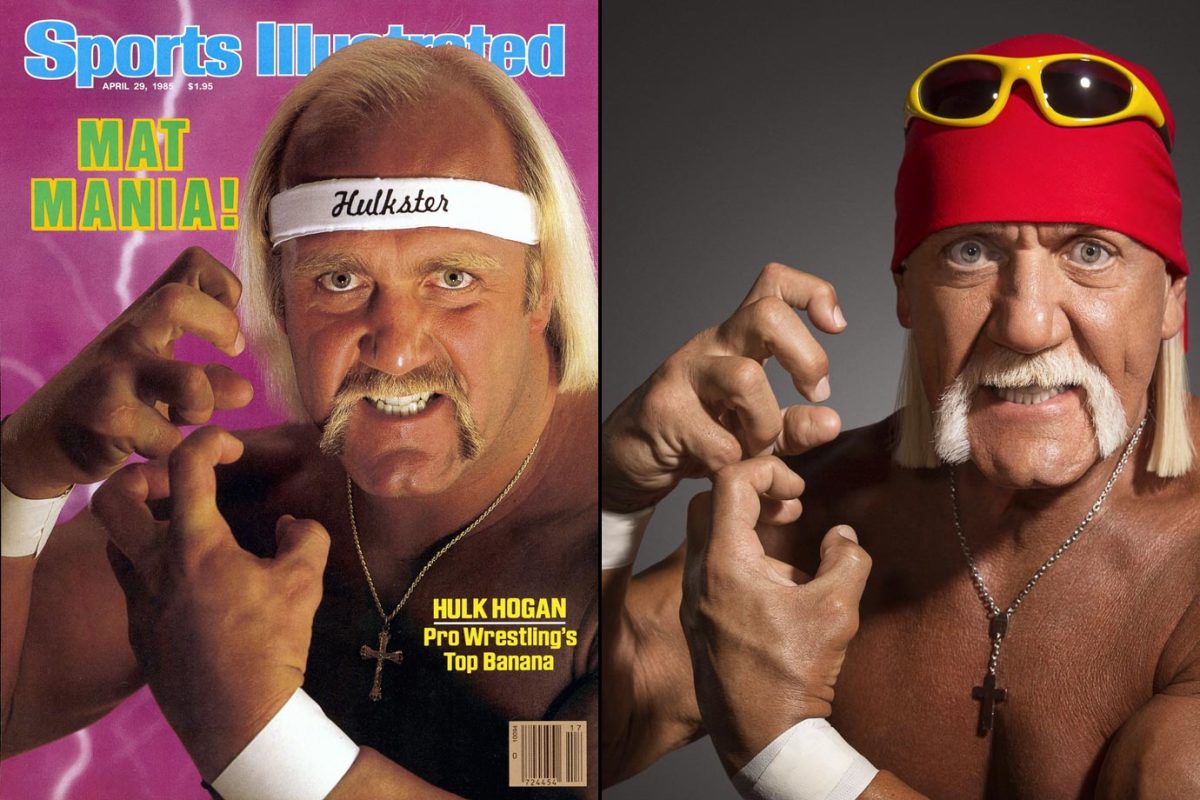
Triple H
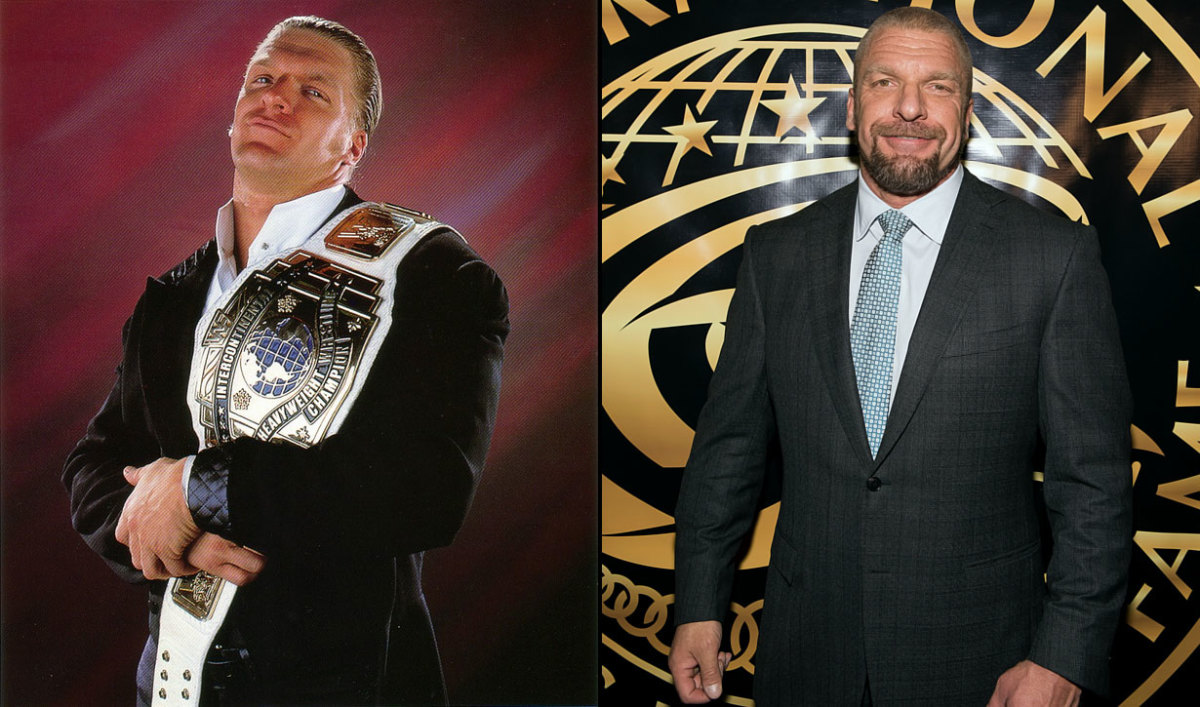
"Stone Cold" Steve Austin
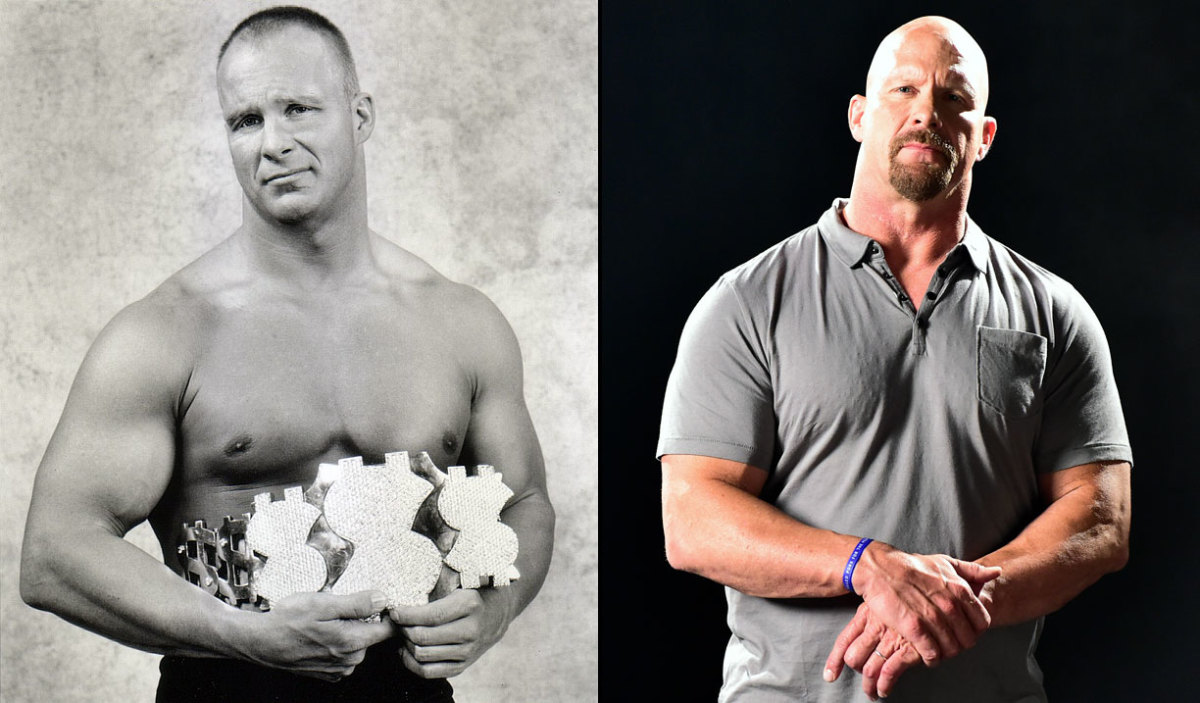
Chris Jericho
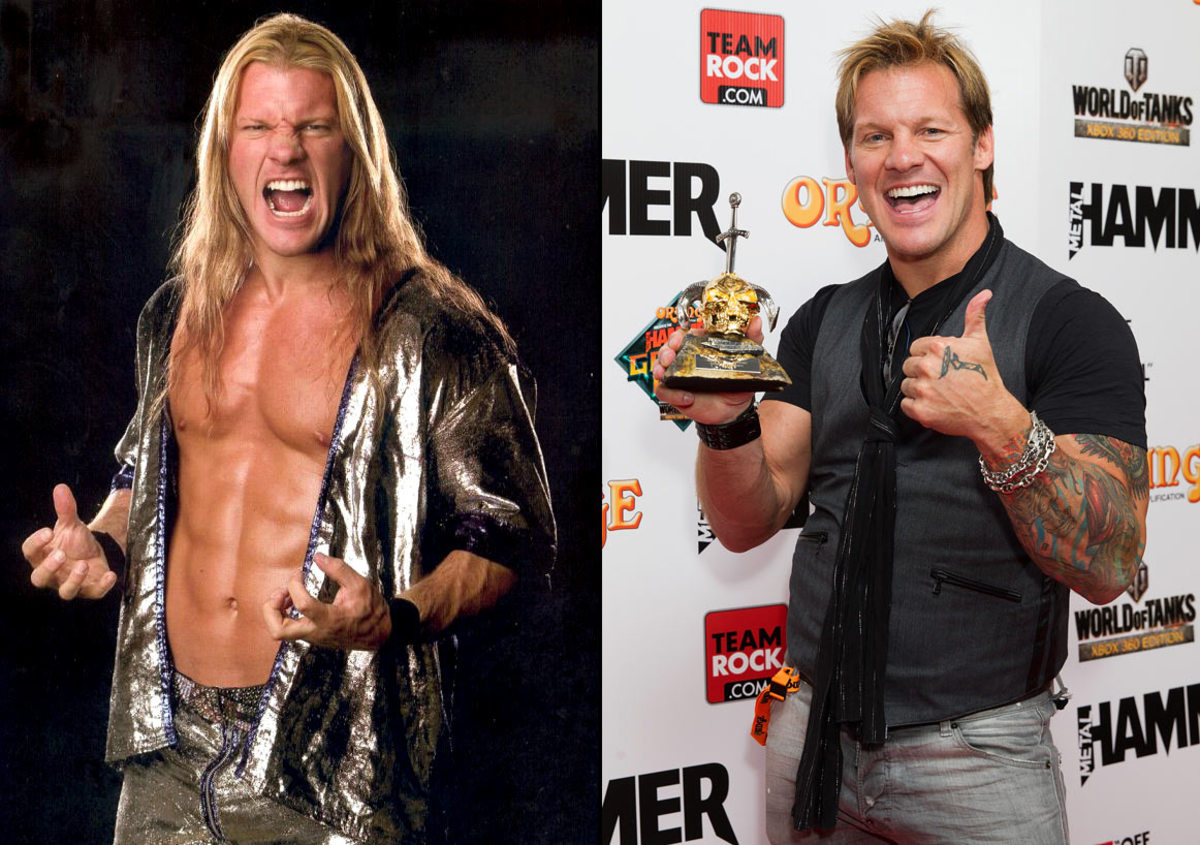
Shawn Michaels
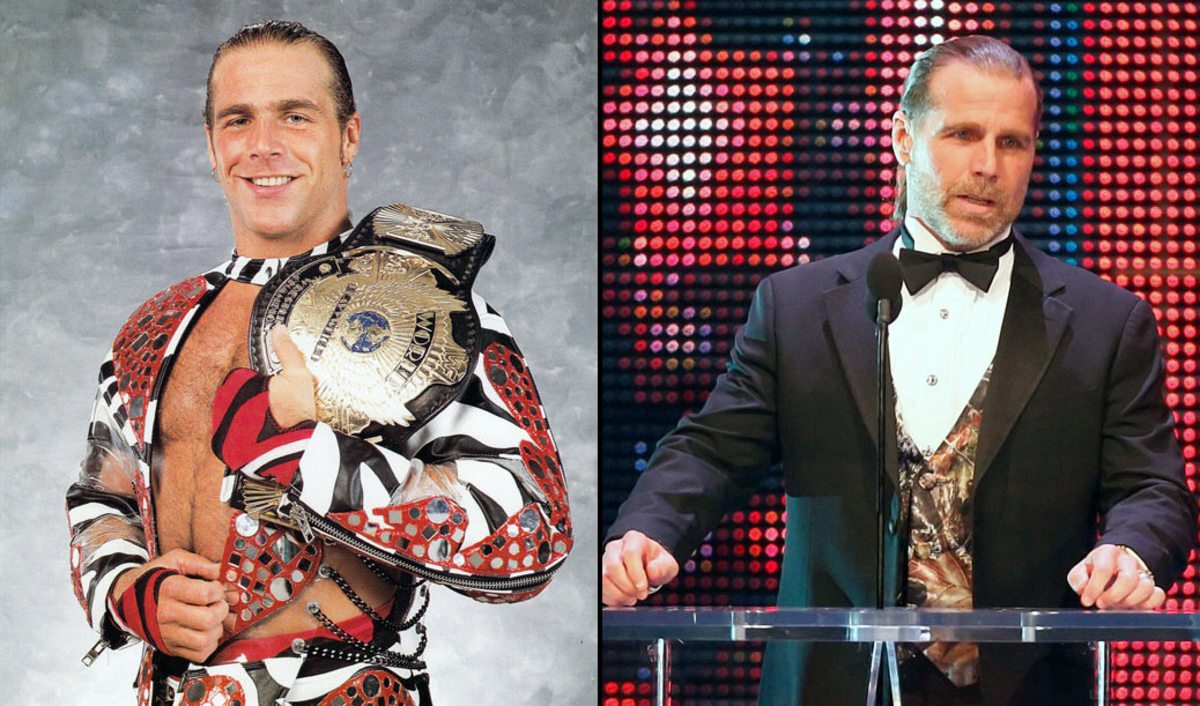
Sting
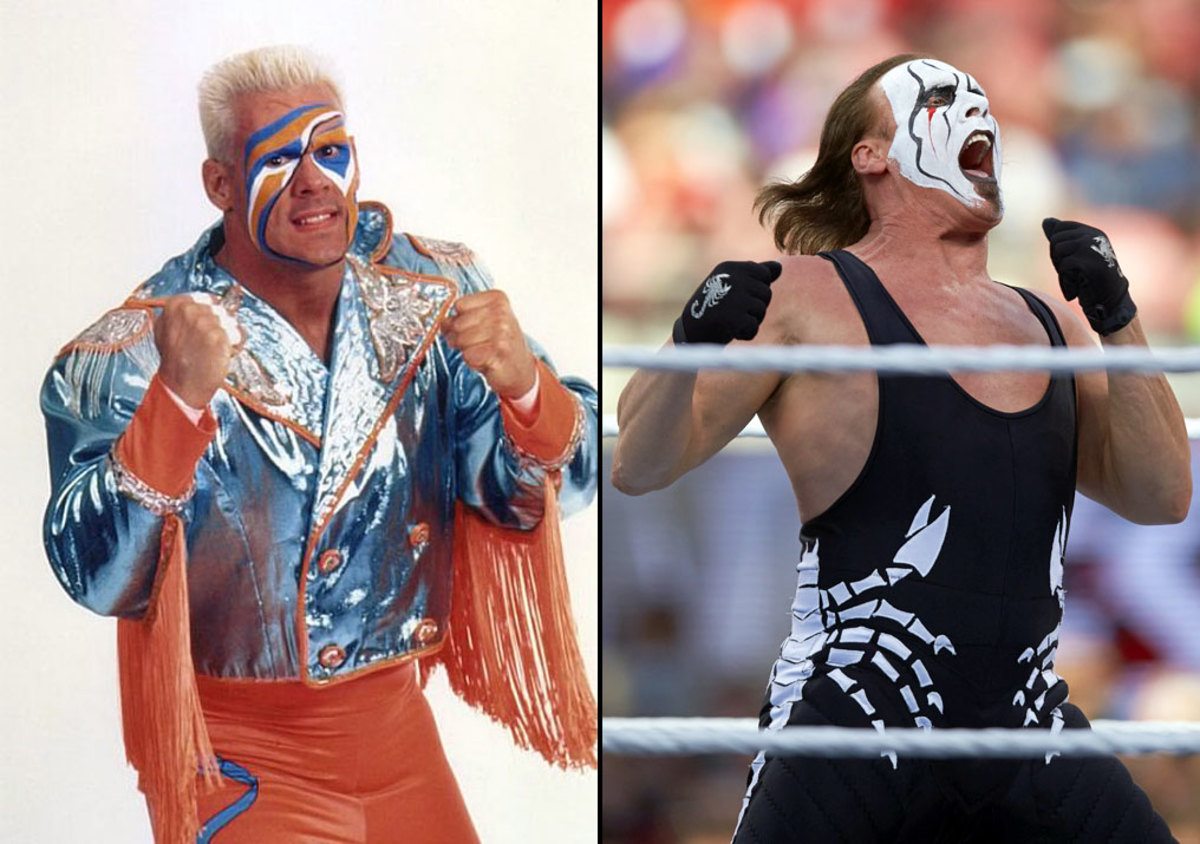
Kane
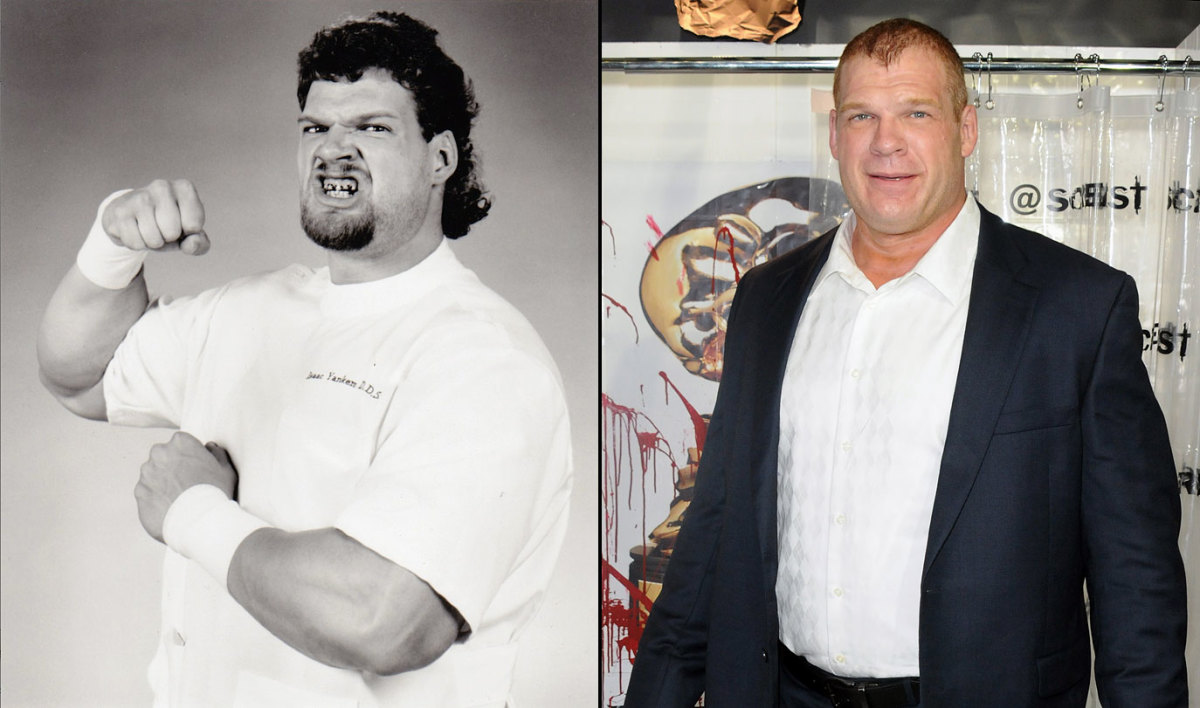
"The American Dream" Dusty Rhodes
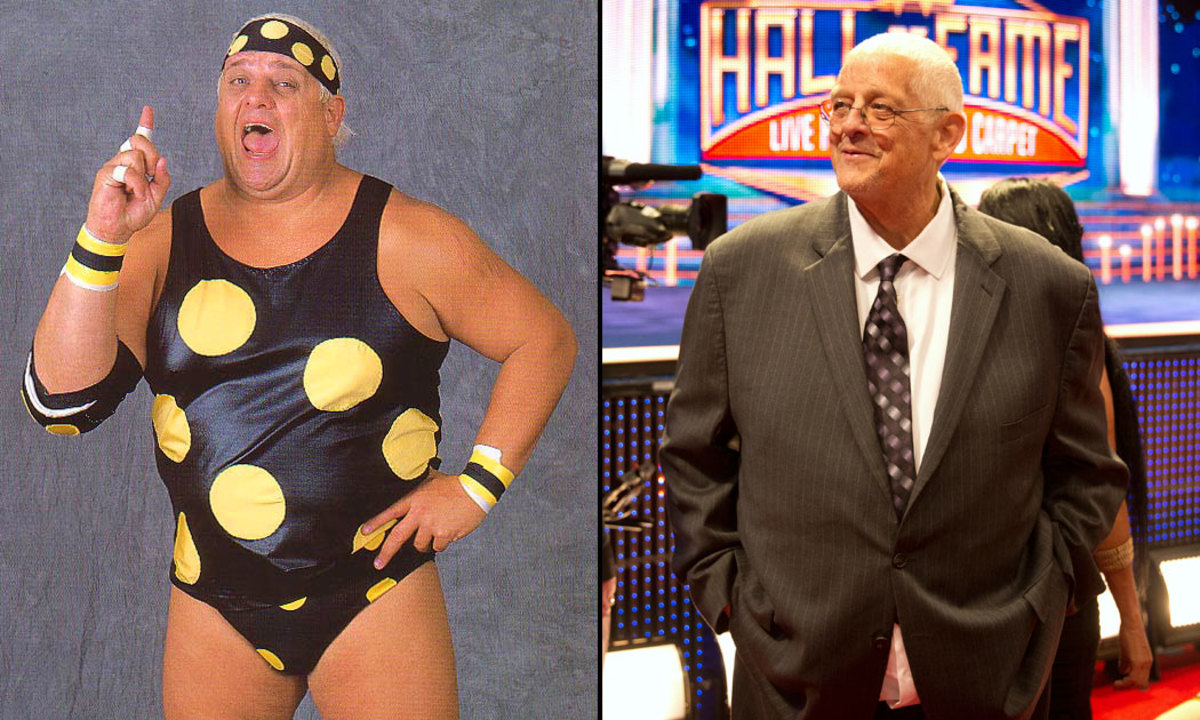
Rhodes passed away on June 11, 2015. He was 69.
"The Nature Boy" Ric Flair
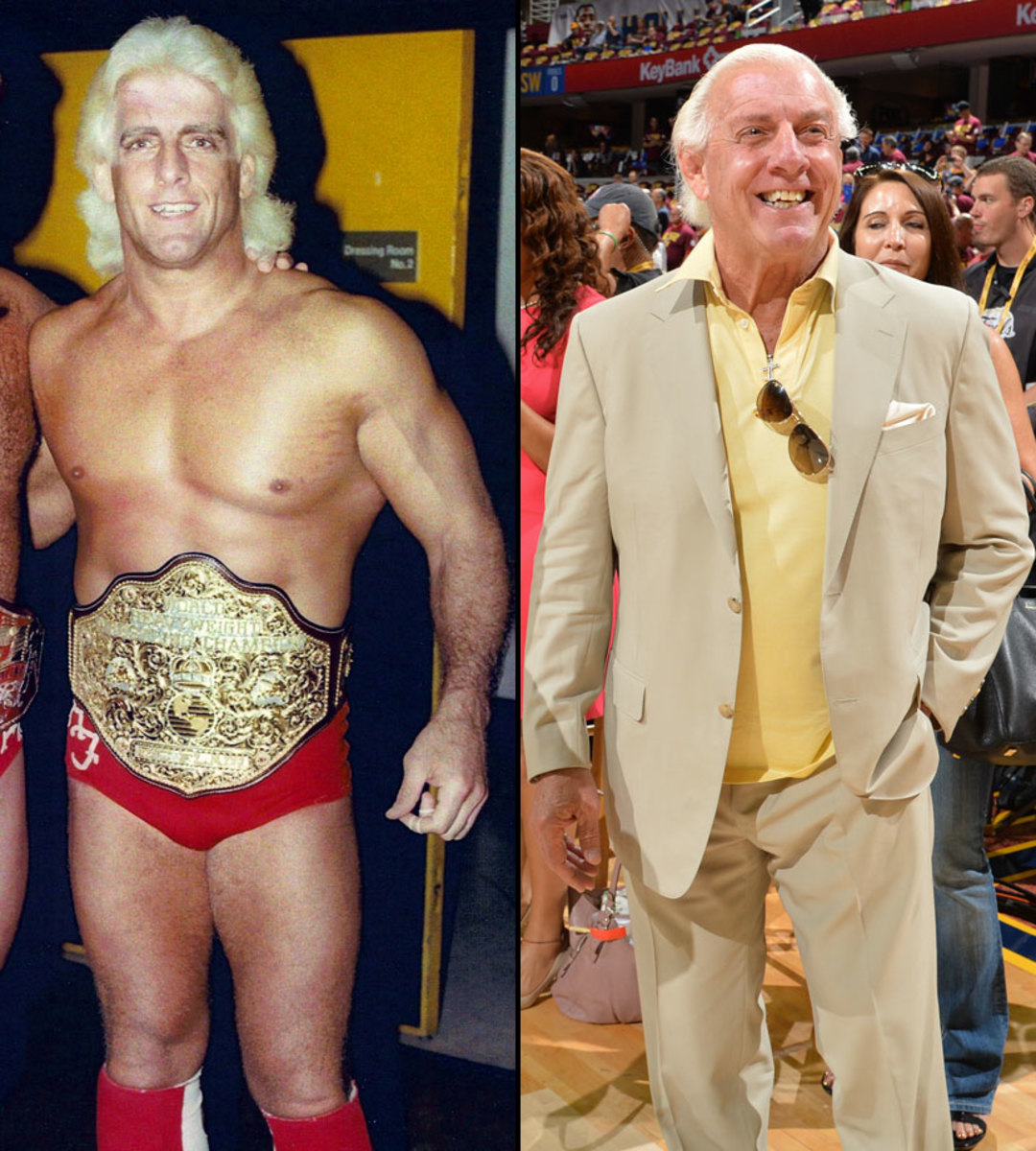
Kurt Angle
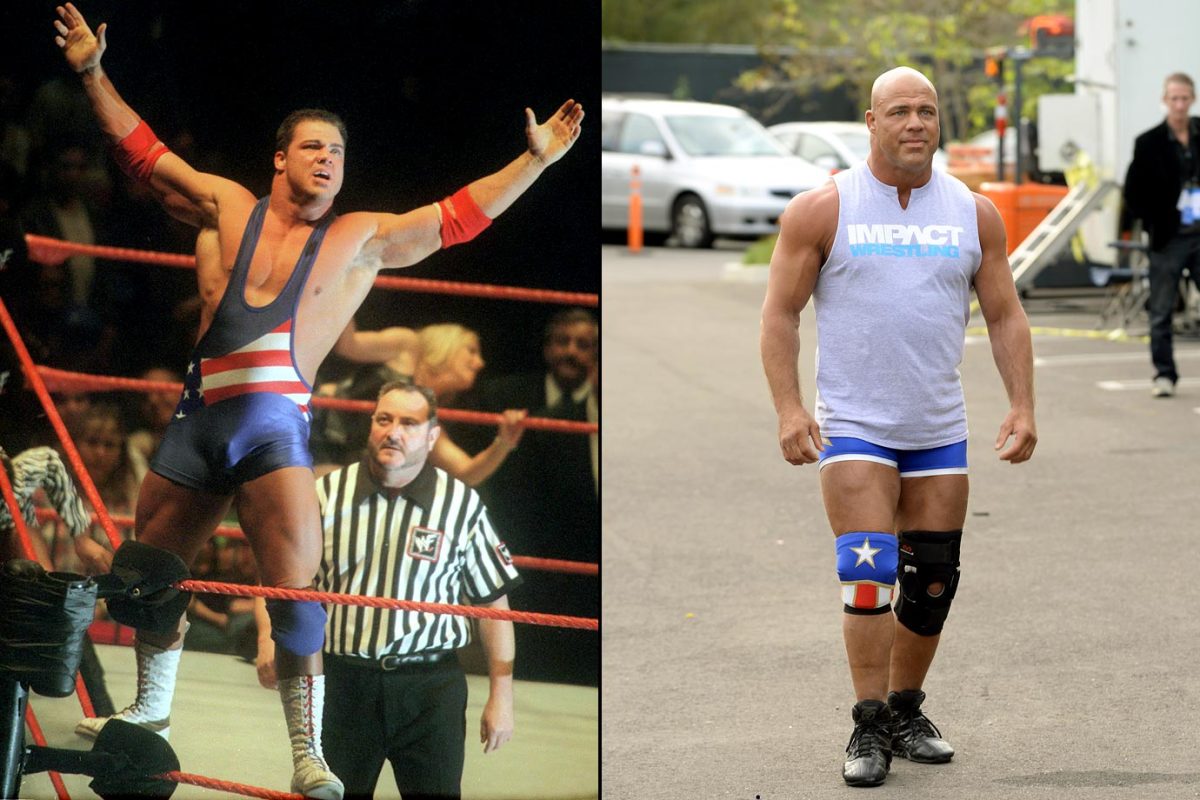
"Rowdy" Roddy Piper
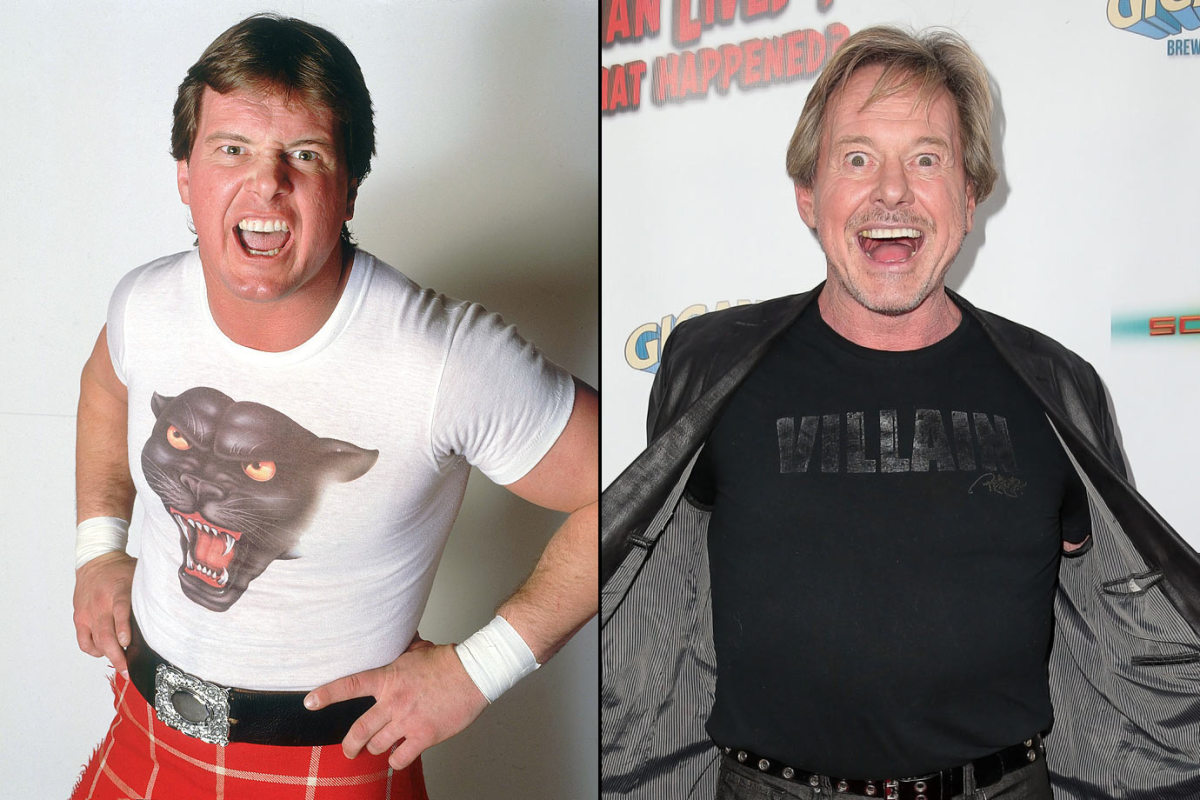
"Hacksaw" Jim Duggan
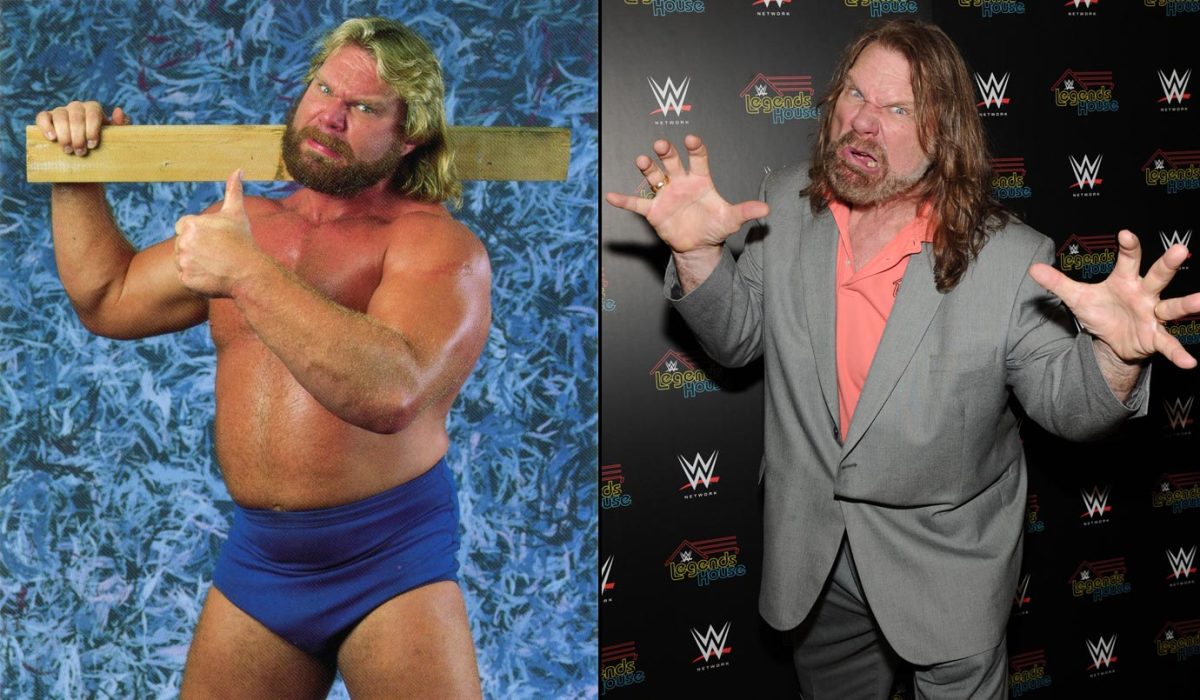
"The Mouth of the South" Jimmy Hart
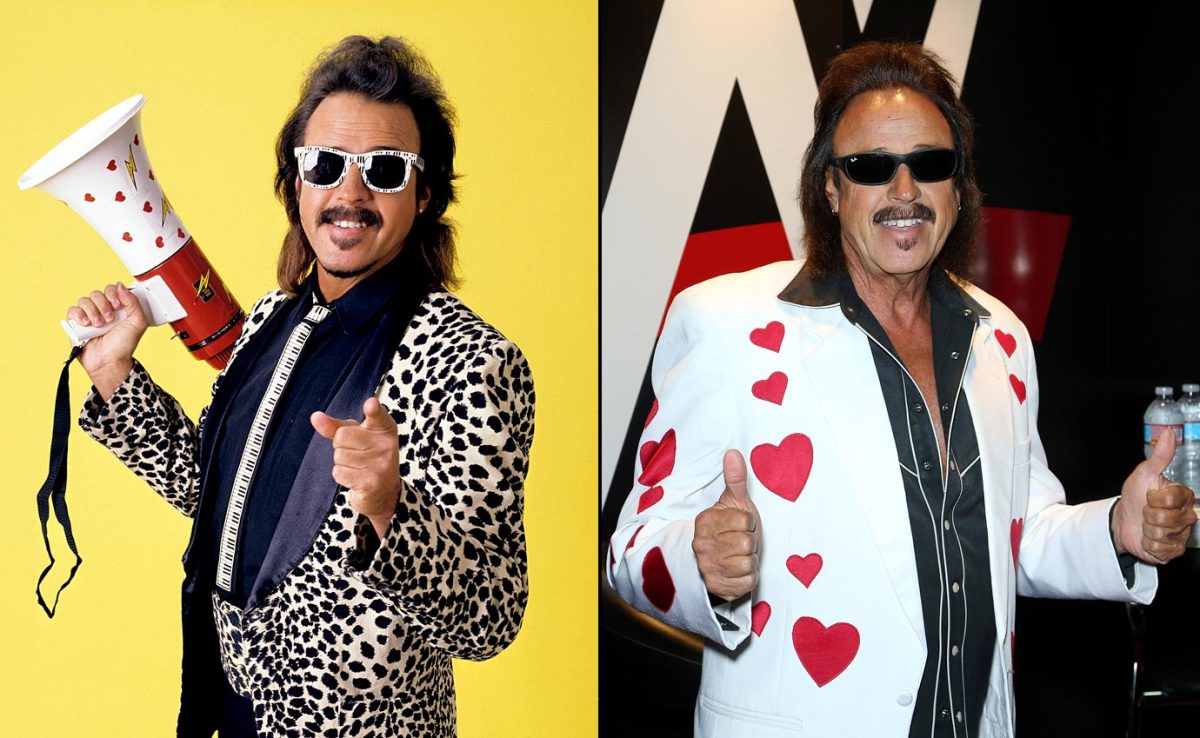
Rikishi
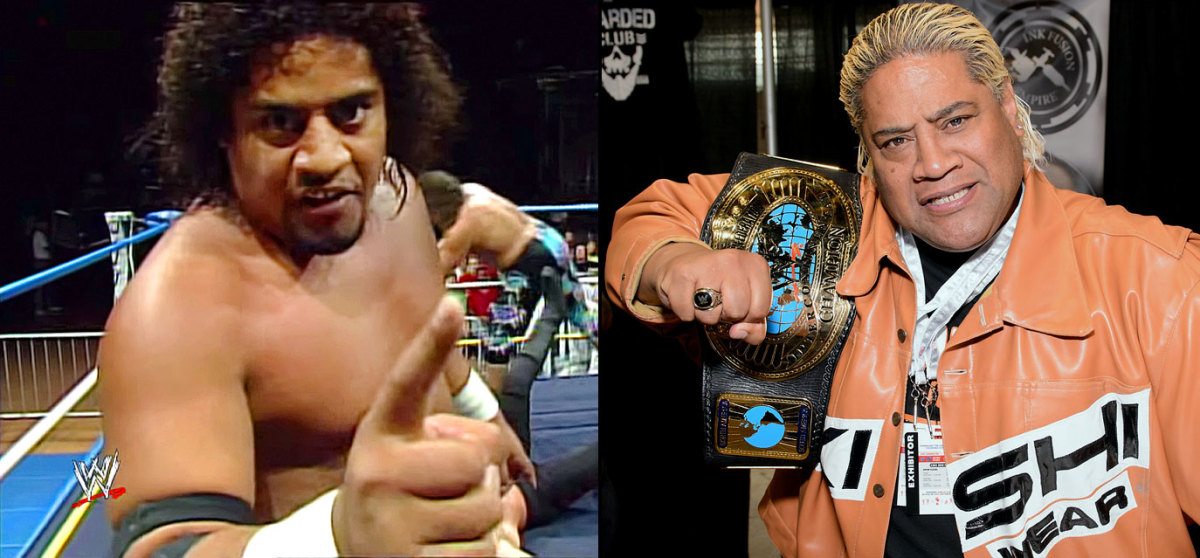
The Bushwhackers
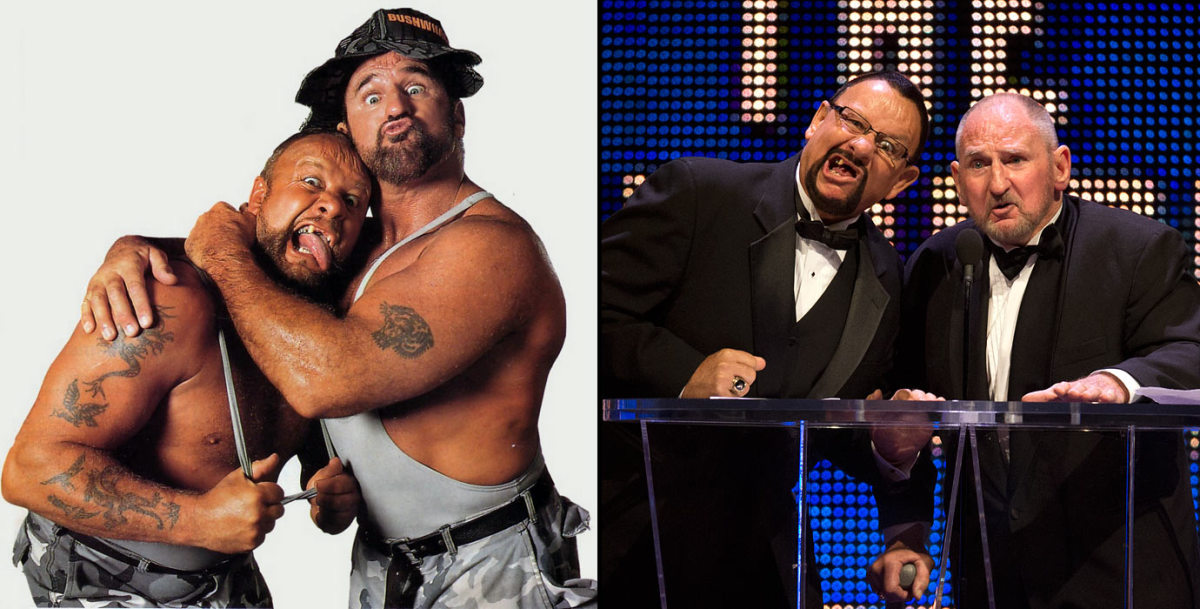
Luke Williams and Butch Miller
Bob Backlund
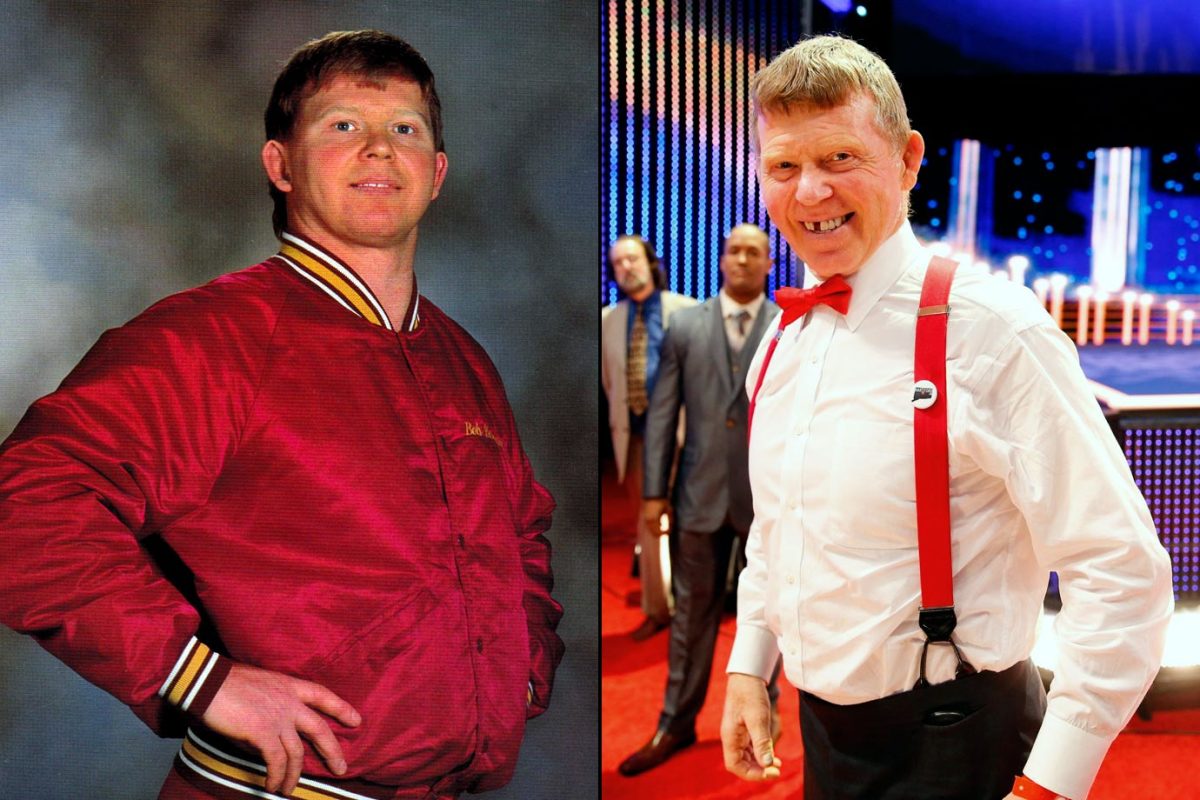
Tito Santana
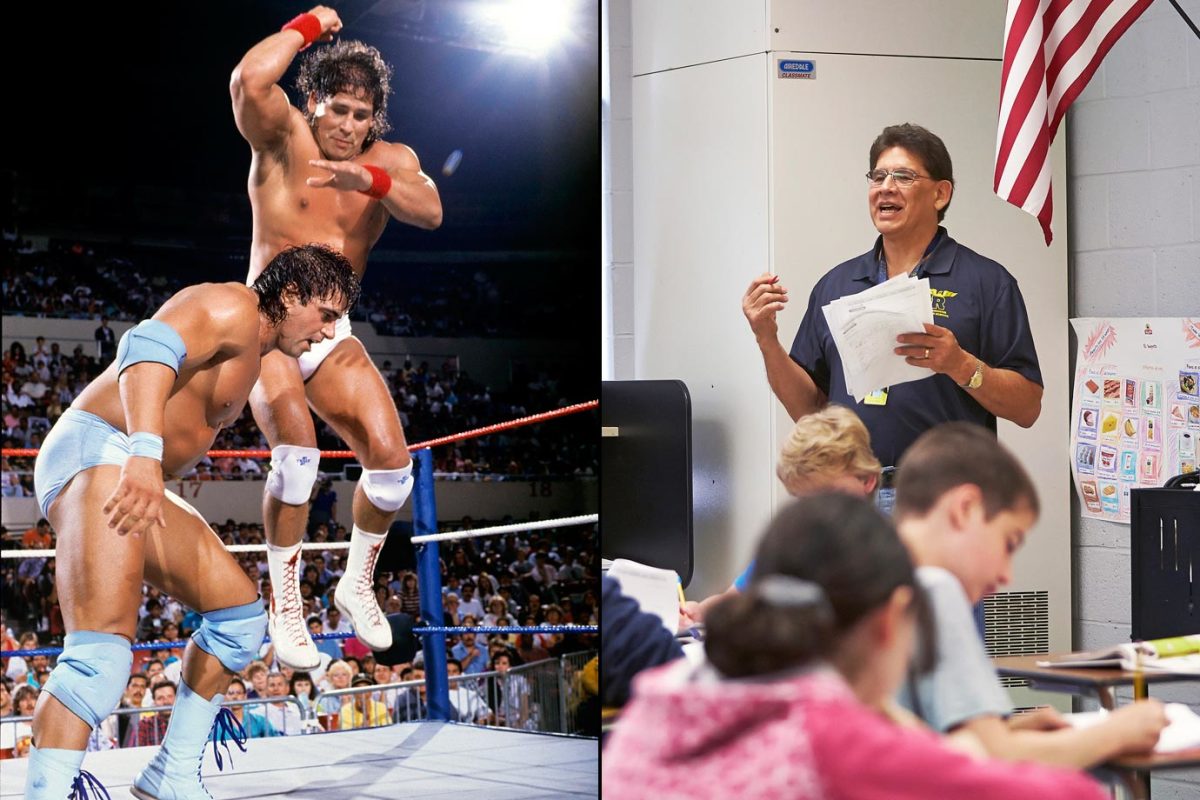
Tony Atlas
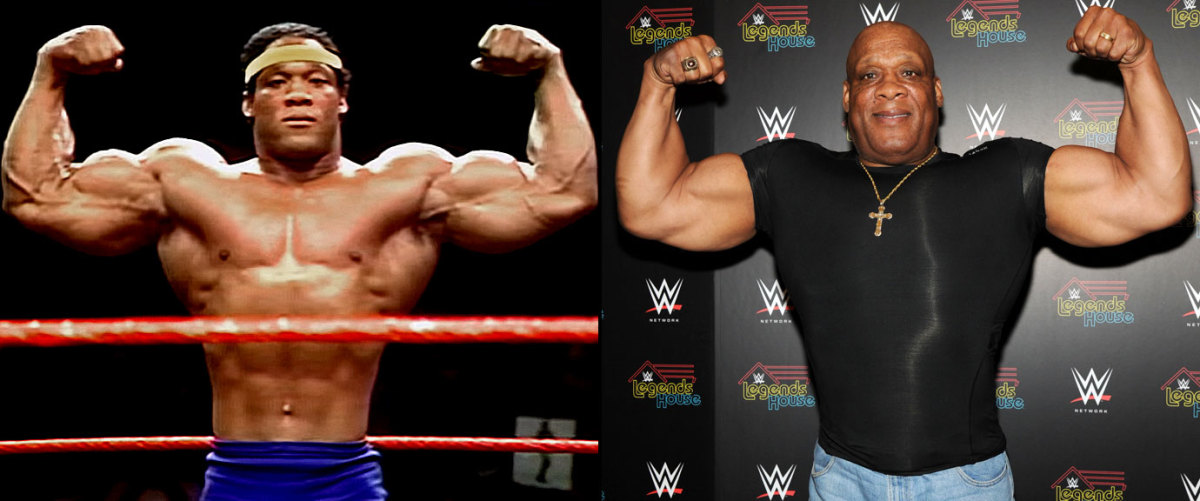
"Mean Gene" Okerlund
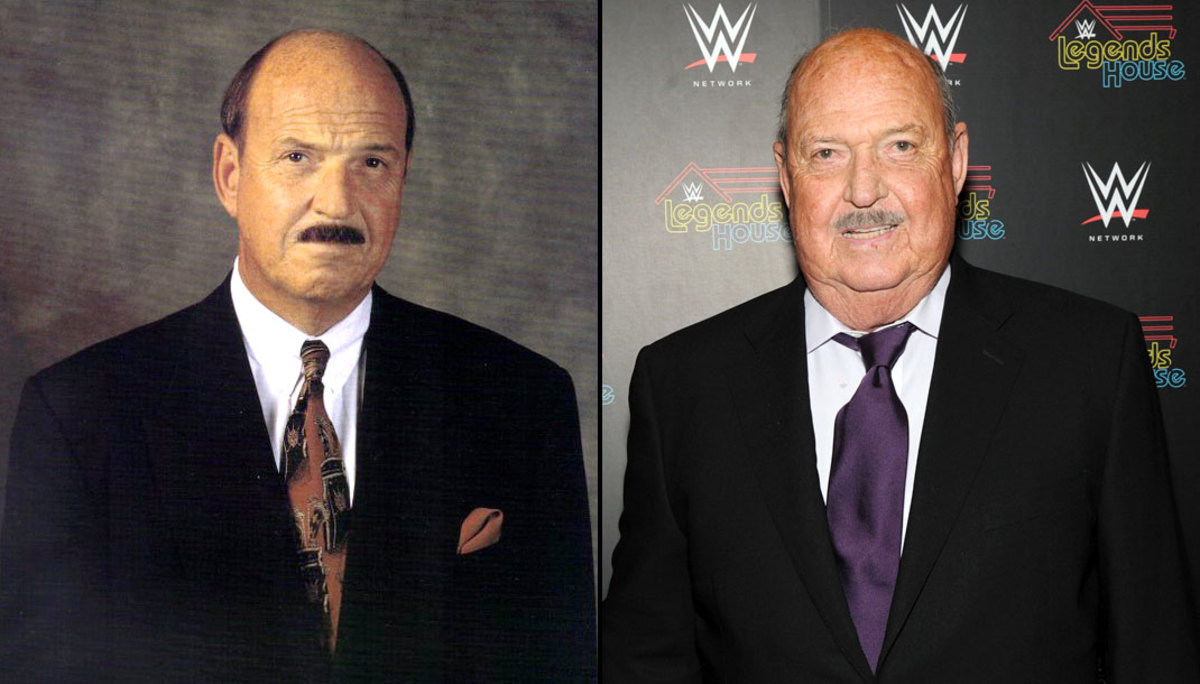
Howard Finkel
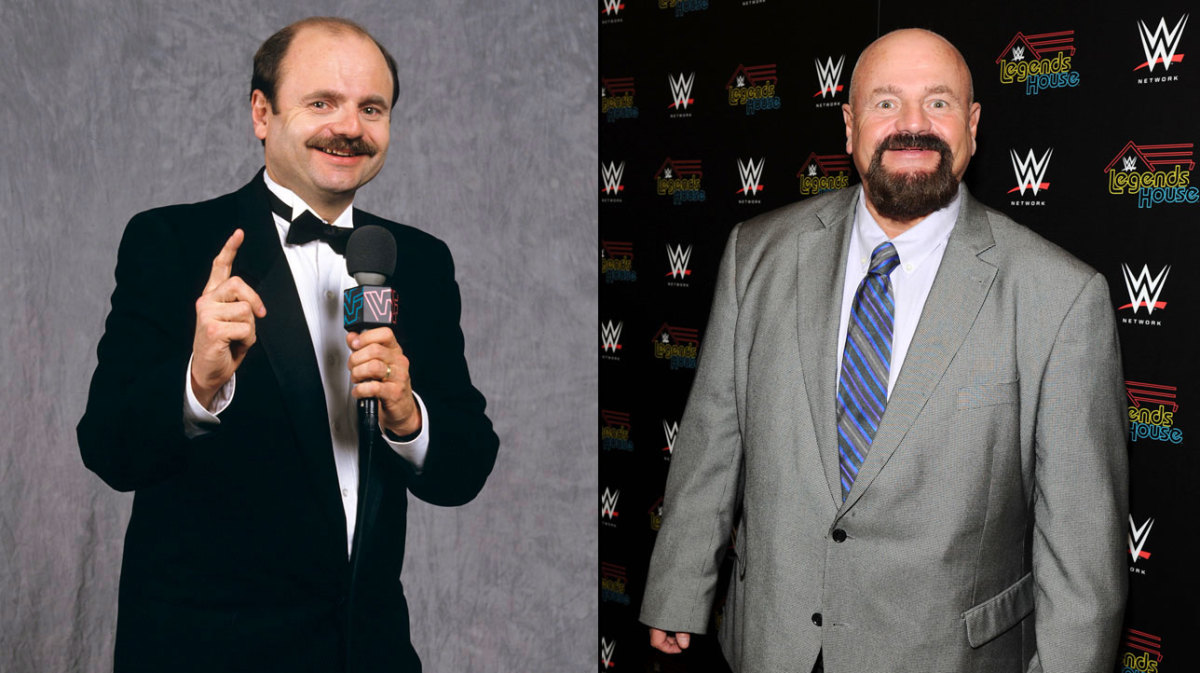
[pagebreak]
[youtube:https://youtu.be/o6UWUolS6Z0]
Enter WCW and the title-trashing heard ‘round the wrestling world. “That was the defining moment of my whole career: the b---- that threw the title in the can,” says Miceli. She insists that she performed the gesture (at the behest of WCW honcho Eric Bischoff) not out of pain or anger but because of the pressure she felt to make an impact as a woman in a male-dominated industry. The resulting backlash—not just from McMahon, but from many of her own colleagues—surprised and offended her. “You don’t look through these eyes,” she says. “You don’t walk in these shoes. You don’t know what I was thinking. Excuse me, you’re all dudes saying this.”
Her next five years would be a mishmash of breakthroughs (becoming the company’s first female cruiserweight champion, participating in a world championship tournament) and lowlights (“evening gown” matches, being slathered in barbecue sauce). As the industry began to shift women into roles that emphasized sexuality over athleticism, Miceli grew frustrated. “I was a wrestler, damnit,” she says. “I didn’t like the notion or the thoughts of wrestling in bras and panties and all this crap. I was pissed off.” In 2001, when McMahon bought out WCW, she hung up her boots for good.
The seeds of her second act had been planted two years earlier, during a WCW cross-promotion with Monster Jam. Knowing of Miceli’s gearhead hobbies, a Monster Jam exec asked if she wanted to give driving monster truck driving a try. At a tryout in Kill Devil Hills, N.C., Miceli nearly flipped her truck and crawled out to ask the company reps what they thought. She was hired on the spot, driving in weekend shows while still working for WCW.
Oral History of Pro Wrestling’s 1995 Historic Excursion into North Korea
Upon retiring from wrestling, she shifted to Monster Jam full-time, proving she was more than just a moonlighting wrestler or a stunt to court female fans. “Anybody that thought it was a novelty probably doesn’t know her,” says longtime Monster Jam announcer Scott Douglass. During Miceli’s tenure, as Monster Jam has expanded from winter U.S. tours to an international summer schedule, its stable of female drivers has more than doubled, now numbering eight. “If the door was cracked open” for women in Monster Jam, says Douglass, “she kicked it open.”
Still, the championship belt in her home safe beckoned her. A few years ago she toyed with the idea of showing up unannounced at WWE headquarters to return it. Then, this past January, she got an out-of-the-blue call from a WWE executive telling her the company was inducting her into its hall of fame. At a run-through before the ceremony this past March in San Jose, she and McMahon crossed paths for the first time since she left the company. They exchanged pleasantries before breaking into a hug 20 years in the making.
“We both just held each other and I squeezed him so tight,” says Miceli, who was told that she could keep the belt after all. “I started getting emotional and kind of crying.” During the embrace, Miceli whispered in McMahon’s ear that she was sorry. She says he told her that she was the kind of performer the company needed today. “I think I almost fainted,” Miceli says.
After years of feeling like a pariah, she was taken aback by the weekend’s embrace. Her induction speech—highlighted by a symbolic retrieval of the original championship belt from a metal garbage can—was a hit among fans and peers. A new generation of women’s wrestlers gushed over memories and picked her brain. “I never knew people felt this way,” Miceli says. “I always thought they hated me.” Even the younger generation? “I didn’t think they gave two s---s.”
[youtube:https://youtu.be/SLFFC-MkTqs]
Her reconciliation with McMahon and WWE—which produced the sky blue trashed-title T-shirt to commemorate her induction—has given Miceli not only her long-awaited closure but a renewed investment in the product. She has stayed in touch with a handful of the company’s current crop of women and has grown particularly fond of those starring in NXT, the WWE’s developmental program. Headlined by Charlotte, Sasha Banks, Becky Lynch, and Bayley, the group “reminds me of back in the Japanese days,” says Miceli. “There’s more contact, there’s more stiffness, there’s more legitimacy.” While WWE’s current women (Divas, in WWE parlance) are often relegated to brief TV segments and throwaway matches, prompting fan movements like #GiveDivasAChance, Miceli is optimistic that the impending injection of new blood will shake things up. “There’s gonna be a great, great change,” she says, raising her eyebrows. “Watch and see what happens. It’s gonna be wonderful.”
Miceli is eyeing changes of her own. At the end of this year, her contract with Monster Jam will expire; she is currently in negotiations on a new deal. She has signed a five-year agreement with WWE that includes merchandise and personal appearances. (“It could be anything,” she says, cryptically.) She is working on her doctorate in naturopathy and recently spent a month studying in the Bahamas to become a certified yoga instructor. She recently shuttered her pet-grooming shop in Florida, but may open another when she and her husband, Alan Jonason, an Army command sergeant major stationed in Syria, settle into retirement. In the meantime, she is working on a book about her career. She hopes her next chapter is her best yet. “There’s something more coming,” she says. “I can feel it.”
